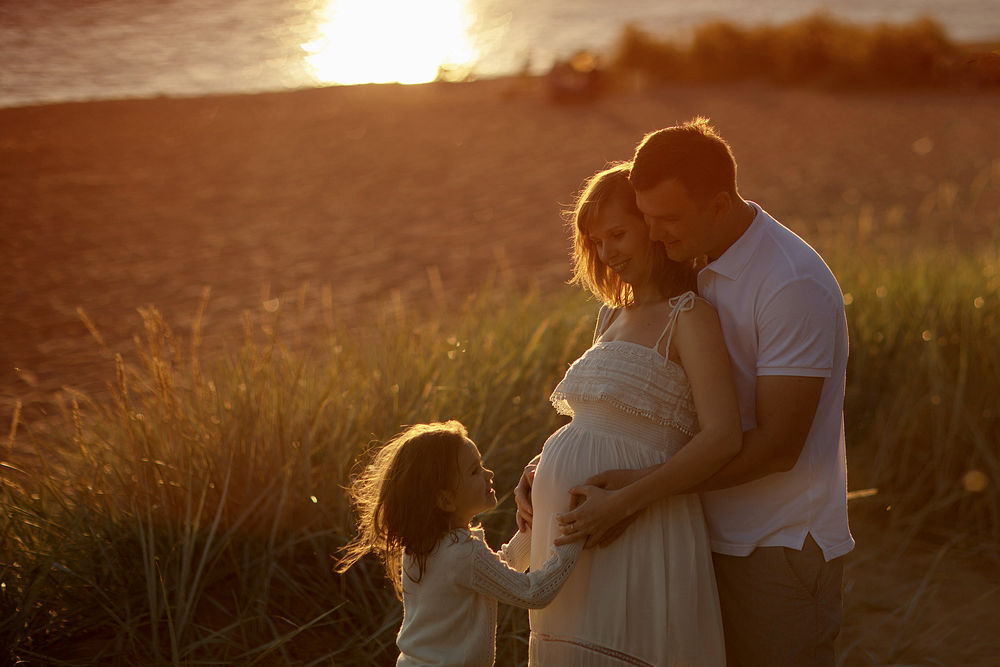Out of the 50 couples in our marriage preparationrnclass, only two had decided to practice NFP, my husband and I being one ofrnthem. In response to these numbers, the well-meaning couple teaching the classrnstarted proselytizing the values of this oft-discarded method of familyrnplanning. “You will achieve greater intimacy with your partner,” theyrnexplained, and “get a remarkable understanding of your own biology,” closingrnwith the proverbial, “if you eat organic, why wouldn’t you do this?”
After the presentation, informational discs onrnNFP were snatched up by nearly every couple present. It was promising that sornmany couples were compelled by the promises of NFP. But what comes later afterrncouples go home and learn that NFP classes are not covered by their insurance?rnOr when they learn the diligence and sometimes inconvenience that charting orrntemperature taking (depending on your method) often requires? What about whenrnthey are overwhelmed by the nuances of pre and post peaks? The reality of whatrnNFP is may come as a bit of a shock to those who felt they were promisedrnsomething different.
Because the truth is that NFP is about asrncompatible with modern culture as celibacy is. It’s difficult, a perceivedrnrisk, demanding, and yes, absolutely beautiful. But that beauty cannot, andrnshould not, be mistaken for ease. And it’s because I fell in love with NFP, forrneverything that it is and has been for me, that I wish it wasn’t treated asrnsomething to sell. I’ve had numerous friends and acquaintances who were drawn tornpractice NFP by its holistic and unifying aspects, only to feel disenchantedrnwhen confronted with the tedious trials of actually practicing it every day, orrnthe dizzying confusion that comes after the birth of your first child. I’vernseen couples walk away from NFP with chips on their shoulders, but morernalarmingly, a feeling of having been misled.
I can empathize. As someone who had experiencedrnharmful past relationships I felt empowered and protected by the values of NFP.rnI felt a feminist thrill at Mother Church protecting my sexual life byrnrequiring my spouse to understand my body and desires as much as I knew them.rnAfter years of fearing the vulnerability that comes in marriage I, for thernfirst time, felt endowed with this great gift, and felt proud that this, this is why I love being Catholic.rnAnd as my husband and I met regularly with our brilliant NFP instructor, wernonly felt more and more capable to rely on this method, and proud that we knew,rnto the day, when our daughter was conceived.
However, during my pregnancy I had hyperemesis, a complication that is characterized by severernnausea, vomiting, weight loss and dehydration. I wasrnfrequently hospitalized, forced to take medical leave from work, unable to eatrnand drink many days. Often, merely getting out of bed was an achievement. Therernwas extreme weight loss and the ever-present fear of how the little baby insidernof me was doing. There is a 50% chance I will have hyperemesis with futurernpregnancies. The thought of raising my little girl while managing the illnessrnof another pregnancy like that one, quite frankly, scares me, even though Irntrust that God would champion me through.
But it doesn’t make NFP easy. And navigating myrnpostpartum biology with my newfound inconsistent cycles feels uncertain andrnrisky. This is something I wasn’t prepared for, and I know I’m not alone. Irnknow couples who are practicing celibacy for years at a time because of thernprecarious financial or emotional situations an unplanned pregnancy would putrnthem in. Many more have chosen contraceptives. I can’t help but wonder ifrnpeople would grow to appreciate NFP more, as opposed to resenting it, if this reality wasrnmore openly discussed the way the other difficult teachings of our faith are.
I still love NFP all the same. I love it because,rnafter years of experiencing objectification, NFP encourages my husband tornconsider my entire person and demands that I seek my husband’s “greatest good.”rnI love it because I know my body in a way I have never known it my entire life.rnI love it because it demands discipline, structure, and constantly reminds mernthat sexuality and life are a gift and not an entitlement. I love it for allrnthese things and I will continue to practice it. I practice it because of itsrninherent beauty and truth, not because someone colored it pretty or made mernbelieve it would make my life easier.
When we seek to invite people into the Church, werntoo often fearfully sell the morernburdensome practices instead of explaining the yoke of our faith, one thatrnpromises to be “light” and “easy,” but a yoke all the same. Because not everyrnMass a convert goes to is going to have an earthbending homily and catchyrnmusic. Not every confession will be transcendent. And not every consumption ofrnthe Eucharist is going to “feel” like the body and blood of Christ. And yet, wernbelieve those truths exist beyond senses, beyond recognition, beyond ease, andrnwe want to share them.
Invite people to practice NFP because it is whatrnthey deserve. And share the truth of this often baffling, sometimesrnostracizing, yet also empowering and uniting, beautiful mess of a yoke, for everything that it is.
Interested in more? Subscribe to Angelus News to get daily articles sent to your inbox.
Casey McCorry is a digital associate for the Archdiocese of Los Angeles, a documentary filmmaker, wife and mother.

